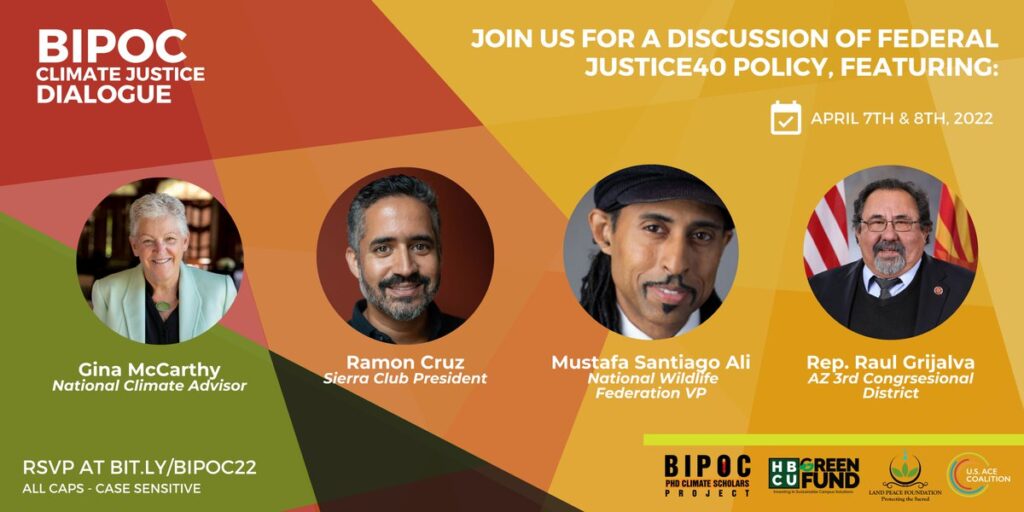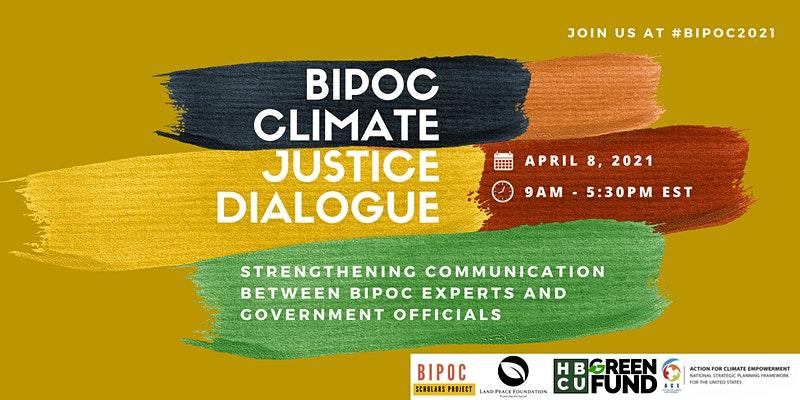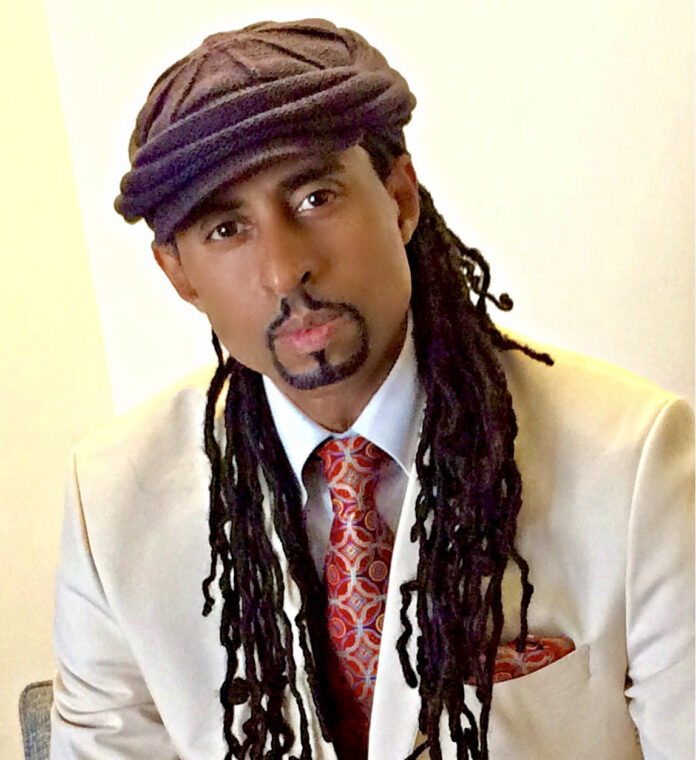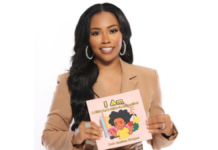( ENSPIRE Community Spotlight ) Environmental Justice Leader Mustafa Ali Recently Spoke at the BIPOC Climate Justice Dialogue about Environmental Issues Facing Communities
ENSPIRE Contributor: Natalie Dean
With environmental activists becoming increasingly concerned about the state of the planet, the recent BIPOC Climate Justice Dialogue was an important and necessary discussion about the future of our planet and our strategies for the future. In this dialogue, many POC-run organizations were able to be highlighted. These organizations seek to expose and rectify the intersections between climate-related issues and disproportionate effects on disadvantaged communities, including communities of color. The organizations also seek to carve out a space for BIPOC academics, activists, and leaders within environmental science and protection.
Environmental justice leader Mustafa Ali was present at the discussion and was able to lend his thoughts and experiences to many topics that were discussed. The topics centered specifically around the recent Justice40 Initiative, which for those who are unfamiliar is a collective of environmental activists and leaders with the goal of making at least 40% of the benefits of sustainable infrastructure available to disadvantaged communities.

Ali recently spoke with ENSPIRE about the event and his work:
What were some of the biggest takeaways from the recent BIPOC Climate Justice Dialogue? What topics were most discussed, and what (if any) conclusions were made about these topics?
Last year President Biden issued Executive Order 14008 with a commitment known as Justice40, an interagency effort to ensure that at least 40% of government infrastructure investment benefits disadvantaged communities. This year the focus was on the implementation of Justice40 including the Justice40 Screening Tool and the decision to exclude race as a factor. BIPOC (Black, Indigenous, and People of Color) communities are concerned about this omission and eager to learn specific ways in which goals will be established and realized by various federal agencies.
How has your work in the Environmental Protection Agency, National Wildlife Federation, and other groups impacted the way you view issues such as global warming, deforestation, etc? What have you learned about the world and about yourself by participating in these groups?
The HBCU Green Fund principles have worked on climate change issues for more than two decades within the domestic and international arenas. We have been active advocates for centering justice within the climate movement and policy. We have worked with a wide variety of NGOs in this work including Second Nature, Environmental Defense Fund, and Intentional Endowments Network in the collegiate space and National Wildlife Federation, Sierra Club and others more broadly. We understand that those who have contributed the least in terms of greenhouse gas emissions have and will suffer the most from impacts including storms, floods, fires, and drought. Katrina remains a poster child and years later many still have never recovered.
When it comes to deforestation and desertification HBCU Green Fund has focused on Africa where we support a number of very impactful micro-projects. We provided a donkey cart for water distribution in a Senegalese ecovillage (Redes) that is planting trees in the Sahel (West Africa) and turning the desert green and by Cherish Aid Uganda (East Africa).
After more than 15 years we’re constructing a permanent home for our EcoCyberCenter in Yene, Senegal.
How do organizations such as the BIPOC Climate Scholars Program and HBCU Green Fund benefit from environmental activism and scholarship?
BIPOC climate scholars bring a perspective that has been missing from the climate dialogue and we believe the climate challenge cannot be solved in the absence of the knowledge, wisdom, and inspiration that these scholars contribute. BIPOC climate activists have always centered our work within a justice frame. Black, Indigenous, Latinx, and Asian/Pacific communities all have relationships with the land and nature with belief systems that have much to contribute to the creation of healthy, sustainable communities. It is not that we benefit from environmental activism, it is that our contribution to scholarship and activism is paramount. Climate change cannot be solved without us.
What is the biggest thing you want people to take away from the BIPOC Climate Justice Dialogue? What is the biggest thing you want to tell people about environmental issues?
This Dialogue brings everyone into the conversation and the exchange is informative, educational, and above all actionable for all participants. Relationships are made that are two-way, government officials want to get information out so that communities can take advantage of opportunities and community representatives want to identify needed resources so on a practical level the dialogue structure works. We find better solutions when all are included and represented. The Dialogue is not about the HBCU Green Fund, we could not do this work without our partners. The Land Peace Foundation shares Indigenous People’s knowledge, issues, and perspectives drawing upon and including a vast diverse network. The US ACE Coalition works to advance Action on Climate Empowerment at the national scale with an emphasis on education, policy, and community empowerment. BIPOC climate scholars are positioned throughout academia and various environmental organizations and even government, their voices a key to crafting real climate solutions that work for the people. The Omega Institute provides a space for gathering and together we open this particular dialogue. The common denominator is a network, the Dialogue is a conversation that connects broad, diverse climate networks.
What plans and projects do you have for the future?
HBCU Green Fund will host the Africa & Diaspora PreCOP 27 Virtual Conference on September 19-23, 2022 with participation from 20 countries and growing. One goal is to highlight work underway especially projects led by young Africans in advance of the UN Climate Conference that will be held in Egypt with a major focus on equity. We will also take a US BIPOC delegation to COP27 in November.
Our most important work is with Black colleges and universities, we are part of an amazing collaborative working to establish an HBCU Resiliency Center that will provide the technical and financial resources to conduct comprehensive campus energy and water audits, deep retrofits, renewable energy, sustainability curriculum, and student engagement. We will expand our HBCU Clean Energy Fellows program based on the Atlanta University Center Energy Fellows pilot program. Finally, we will work with other partners to ensure diverse representation at the upcoming UN Climate Conference where we will continue to advance climate justice.

Thanks to the hard work of BIPOC organizations, more and more information is being spread about the effects of climate change, especially on disadvantaged communities. Scholars of color are working hard to find plausible solutions to climate disasters and mitigate the damage that has been done to our environment.
Their work should be an inspiration to us all to do better for our planet!
To visit Ali’s website, click here! To follow him on Twitter, click here!
Related article: HBCU Green Fund Strives to Make the World a Better Place







